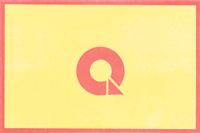The quality of a
product made in Sri Lanka is judged by the SLS mark – a product certification issued by the Sri Lanka Standards Institution (SLSI) which is the national standards body of the
country. Popularly known as the 'SLS Mark Scheme,' it gives a third party
guarantee on quality of a
product. The scheme enables the SLSI to grant permits to local as well as overseas manufacturers producing goods conforming to Sri Lanka Standards, to mark the 'SLS' mark on their products.
SLSI was earlier known as the Bureau of Ceylon Standards and was set up on November 12, 1964 under the Bureau of Ceylon Standards Act No. 38 of 1964. The name was changed in 1984, when a new Act was passed in Parliament. The Institution now functions under the Ministry of Advanced Technology and National Enterprise Development and is governed by a Council appointed by the Minister.
SLSI is a member of the International Organization for Standardization (ISO), which is based in Geneva. As members of the ISO national standards bodies exchange on reciprocal basis, copies of their
national standards and is responsible for disseminating information on
standards, technical
regulations and standards related activities to the
community at national level. Thus the SLSI has the authority to issue ISO
certificates to organisations which apply for
certification.
It is a process where
certain criteria have to be met over a period of time. Once the ISO is obtained, there will be regular checks whether the same
standards are being
maintained.
The Product Certification Scheme is essentially voluntary. However, certification of 20 products locally
manufactured or
produced have been
mandated through the Directions issued by the Commissioner of Internal Trade under the Consumer Protection Act No. 1 of 1979.
The Certification Mark on a commodity or product signifies that the commodity or product is consistently manufactured in
accordance with the
relevant Sri Lanka Standard Specification and could be purchased with a reasonable assurance of quality. Compliance with the requirements of the specification is assured through regular monitoring of the quality assurance
system and audits carried out by qualified Auditors of the Institution.
SLS mark is a major
marketing tool for the
promotion of sales.
It differentiates products
having the SLS mark from other products. It enhances competitiveness and is a
definite advantage over
manufacturing
establishments who do not have the mark. It reduces customer complaints and helps to increase market share . The SLS mark improves the company image, thereby raising the morale of workforce. That in turn leads to an improvement of productivity.The Institution has a scheme of presenting Quality Awards.
The Award has six eligibility categories:Manufacturing/ Service/ Education/Health;
Large (More than 250
full-time employees); Medium (50 – 250) & Small (Below 50). The Award may be given in each category each year. Award recipients may publicize and advertise their Awards. In addition to publicizing the receipt of the Award, recipients are expected to share
information about their
successful quality strategies with other Sri Lankan
organizations.
A Quality Week is held every year during which most organizations arrange talks, workshops and
competitions.
The Institution appoints Technical Committees to advice and guide in its
activities, with the aim of gathering all possible expertise in the best
possible way to maximize benefits to the national economy from these Standardization activities.
In the formulation of National Standard, the
policy of the Sri Lanka Standards Institution is to be in line with the International Standards and practices as far as
practicable. To this effect International Standards are adopted, as Sri Lanka Standards, wherever
feasible.
In the selection of Standards formulation
projects priority is given to standards that facilitate internal and external trade and to enhance the international competitiveness of
Sri Lankan products with the prime objective of
safeguarding the interest of the consumer.
There are now over 1250 Sri Lanka Standards
relating to products,
commodities, materials, processes & practices. Many have been revised to take care of the developments in the new
materials, processes and technologies.
The Laboratory Service Division also offers
product-testing services to the Industry, Trade & Commerce. These tests are carried out in accordance with Company, National or International standards. In addition it offers certain technical services such as establishment of
laboratories and technical training for laboratory
personnel. |

